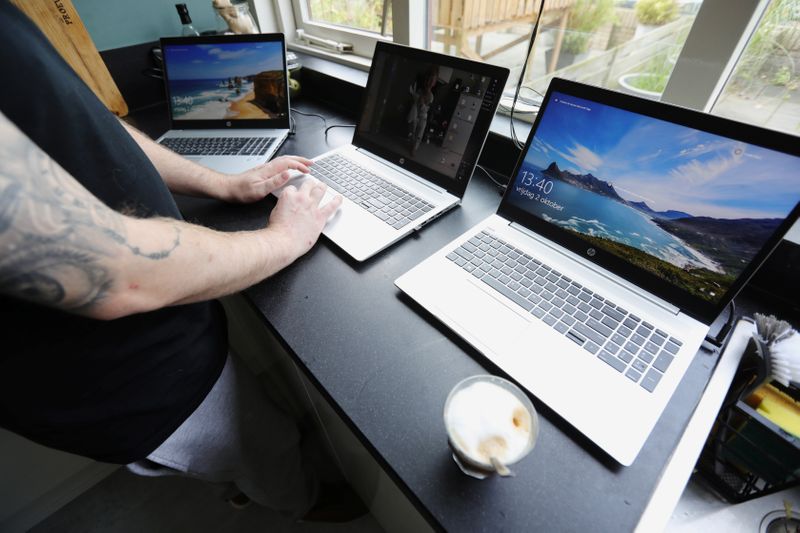By Ann Saphir
SAN FRANCISCO (Reuters) - U.S. businesses have been spending more on technology than on bricks and mortar for more than a decade now, but the trend has accelerated during the pandemic, one more sign that working from home is here to stay.
As spending on home-building has risen, spending on nonresidential construction has dropped, with that on commercial, manufacturing and office space slumping to under 15% of total construction outlays in March, Commerce Department data showed Monday.
Graphic: Don't build them and they won't come - https://graphics.reuters.com/USA-ECONOMY/FUTUREOFWORK/oakvewdrlvr/chart.png
Business spending on structures fell in the first quarter, data from the Bureau of Economic Analysis showed last week. It was the sixth straight quarterly decline, showcasing one of the few weak spots in the economy as it regains steam amid a receding pandemic.
Graphic: Businesses are putting their money where the work is - https://graphics.reuters.com/USA-ECONOMY/FUTUREOFWORK/bdwvkbxrqpm/chart.png
Meanwhile, spending on technology rose, with investments in software and information processing equipment contributing more than 1 percentage point to the economy's overall 6.4% annualized rise in economic output in the quarter, the BEA data showed. Technology spending has added to growth in all but two of the past 32 quarters, back to 2013. Spending on structures has pulled GDP downward in 14 of those quarters.
Graphic: What business investments are boosting GDP? - https://graphics.reuters.com/USA-ECONOMY/FUTUREOFWORK/dgkplyngyvb/chart.png
The implications of the shift are broad: the economy emerging from the depths of the pandemic will be more technology-driven and less reliant on in-person transactions, leaving jobs permanently changed and potentially fewer in number.
Accelerated by the pandemic, the divergence between the two types of business spending is here to stay, says Stanford economics professor Nicholas Bloom.
"This is the surge in (work-from-home) which is leading firms to spend heavily on connectivity," Bloom said.
He and colleagues have been surveying 5,000 U.S. residents monthly, and found that from May to December about half of paid work hours were done from home.
Workers' own spending to equip their home offices with computer connectivity, desks and other necessities comes to the equivalent of 0.7% of GDP, their surveys found, suggesting the business investment data likely underestimates what's actually being spent on technology.
Those sunk costs are one reason that on average Americans will work one day a week from home even after the pandemic, up from about one day a month before, Bloom says.
American firms' reliance on hybrid working should continue to lift business spending on technology for the forseeable future, said ING chief international economist James Knightley.
Spending on office buildings particularly will likely remain weak at least until the end of the summer, he predicted, when the return of most kids to school should allow more parents to return to work.
Even then, he said, businesses will need to continue to spend more than ever on connectivity and computers to support the remote, or partially remote, workforce.
"I think there’s still a lot more to do there," he said.
